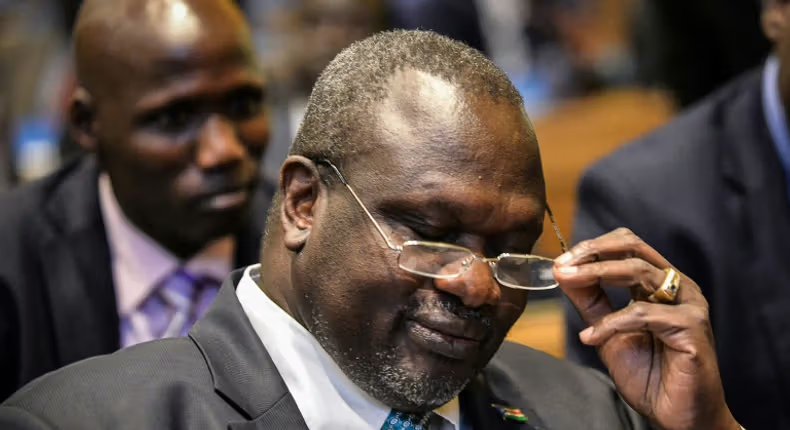South Sudan has been thrown into fresh political turmoil after its First Vice President, Riek Machar, was officially charged with treason, murder, and crimes against humanity. The announcement was made by Justice Minister Ruben Madol, who linked Machar to violent attacks carried out in March 2025 by the White Army militia in Upper Nile State.
The militia, largely made up of Machar’s Nuer ethnic supporters, allegedly overran a government base in Nasir, leaving many soldiers dead and sparking fears of renewed ethnic conflict. Authorities claim that Machar had knowledge of, or was directly connected to, the violence, placing him at the center of responsibility.
These charges come at a delicate moment for South Sudan’s unity government, formed through a fragile 2018 peace agreement between Machar and President Salva Kiir. Their power-sharing arrangement has long been strained by mistrust and rivalry. Now, with Machar suspended from his duties, many fear that the peace deal could unravel completely.
Opposition members of Machar’s SPLM-IO movement insist the accusations are politically motivated. They argue that the government is attempting to weaken Nuer influence and consolidate “one-tribe rule” under the dominant Dinka leadership. Civil society organizations and international observers are urging caution, stressing that any legal proceedings must be transparent, fair, and free of political interference.
The unfolding case has far-reaching implications. It not only threatens to destabilize the already fragile political order but also risks plunging South Sudan back into violence just as it seeks to rebuild from years of civil war. The next steps—whether in the courtroom or through regional mediation—will determine if the country can hold onto peace or slip back into crisis.


